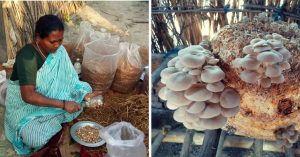TBI Blogs: This 16-Year-Old Is Changing Attitudes & Promoting Better Sanitation in the Slums of Mumbai
Sixteen-year-old Soulya is championing the cause of WASH in her community, trying to bring about a change one step at a time, and making her way to becoming a role-model in her community.
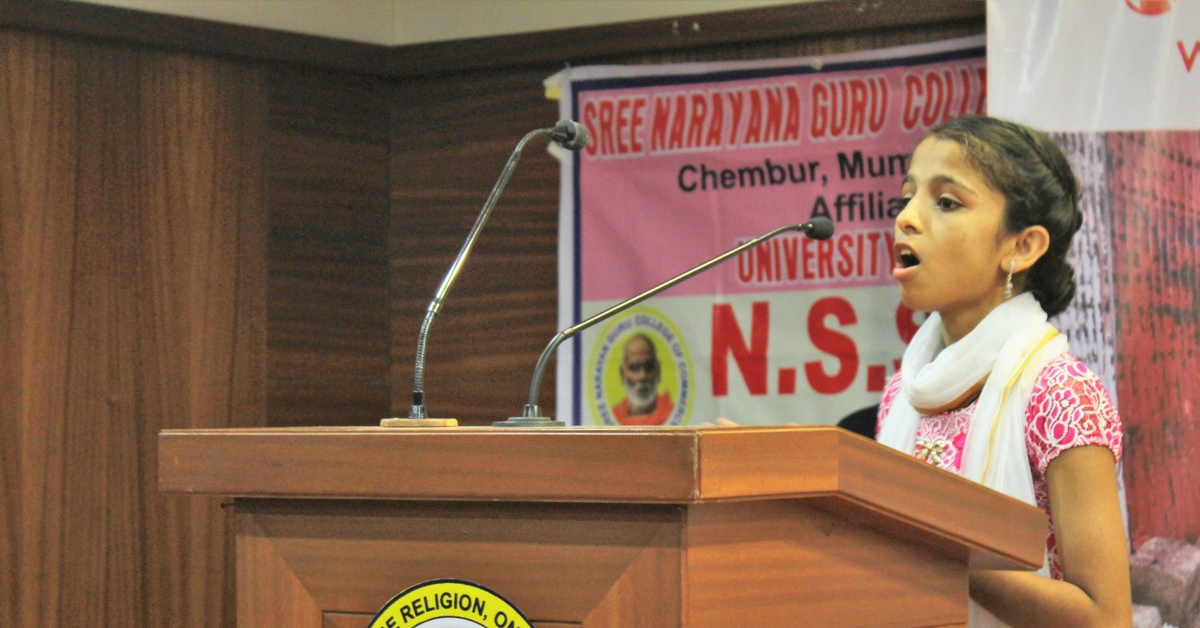
Sixteen-year-old Soulya is championing the cause of WASH in her community, trying to bring about a change one step at a time, and making her way to becoming a role-model in her community.
For an outsider who steps into the slums of Govandi East for the first time, the smell that hits them first. Next they are greeted by the sight of open drainage lines that run on both sides of the slum alleys. While many criticise these conditions, few step in and work towards improving them. The population in Govandi, according to studies, is vulnerable to many health problems because of their proximity to India’s largest dumping ground in Deonar. Issues surrounding Water, Sanitation and Hygiene (WASH) have been in the spotlight for decades, and organizations like Save the Children and Apnalaya have engaged the people in the area through their unique workshops and programmes to create awareness about these.
As a part of WASH4Life programme, Soulya is one of the many youngsters of the community who are determined to act as catalysts of social change, one step at a time. At the tender age of 16, Soulya has strong opinions, and is vocal about the issues in her neighborhood. She was 12 when she first received information about menstruation in the school she studied in.
“The school did educate us about the topic, explaining to us about the changes a girl’s body goes through. But, given the taboos associated with talking about menstruation, our teacher wrapped up the topic quickly. We were taken to a separate class for the session and boys were not a part of it. I think even if boys don’t menstruate, they too should be educated about it,” says Soulya.
She went on to express her disapproval of the custom that women are not allowed to enter the kitchen when they are menstruating. “Is this correct?” she asks. Candid and outspoken during interviews, she continued her story, “I started attending the health sessions at Apnalaya a little after I turned 13. I found their sessions detailed and helpful. They helped us understand the changes in our body during the course of puberty. They promoted menstrual hygiene by teaching us how to use sanitary napkins The ‘teacher didis there are very sensitive to our needs and questions.” Soulya’s parents were not convinced of the need to send their daughter to attend these sessions because of the taboo attached to it. However, she went on to become a trainer herself, encouraging other girls and women from the community to attend these sessions.
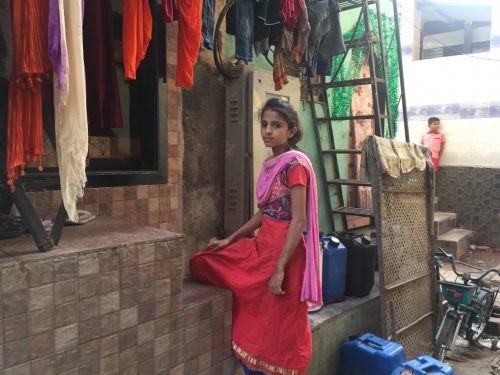
“My father did not speak to me for days when I went against his wishes and conducted training sessions. I tried convincing him many times, but he would not budge, and said that such meetings are useless,” Soulya remembers sadly. Her mother also stopped her from undertaking such sessions because of the notions of ‘shame’ and ‘dignity’ attached to them. But she eventually came around, “My mother has now begun to understand what I stand for. Convincing her was tough, but she acknowledges the change it has brought about in all our lives.”
It was only when one of the teachers from Apnalaya visited their house and talked to Soulya’s parents that they took her work seriously. “Teacher didi convinced my mother, telling her that I was educating the community and that her daughter would make her proud someday.” The WASH4Life workshop taught Soulya and other youngsters from the area basic photography skills. The youngsters were given cameras at the end of the workshop to click photographs reflecting elements of Water, Sanitation and Hygiene in their surroundings.
“I could not believe my eyes when I saw the photographs. So much filth! Although I was aware that we were living in unhygienic conditions, to see those conditions highlighted in these photographs is disturbing. Most of the illnesses in our community are because of poor sanitation and hygiene. I, along with my friends from the workshop, have thus taken it upon ourselves to educate people in the basic steps towards better hygiene and sanitation,” Soulya proclaims with an air of confidence and determination.
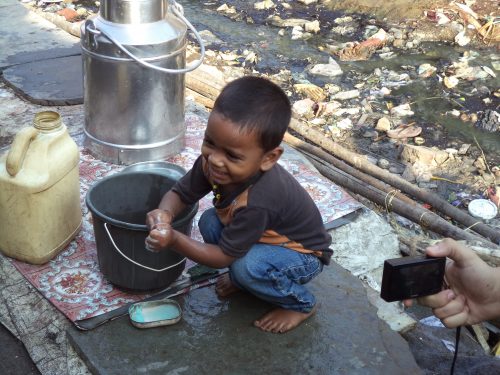
Soulya draws attention to the changes in her own household post the workshop, “Previously, members of my household would wash their hands only with water. Now, they use soap and follow the 10 steps of hand-washing.” She proudly states that her two younger brothers now follow her practices diligently. It will take some time for her parents to completely accept this change. Soulya believes that changing community behavior is a herculean task, “My parents prove that one cannot expect change overnight. Often, my neighbors ask me to mind my own business. They think we are children who do not know anything. For them, a 16-year-old girl must stay indoors and take care of her younger siblings.”
Soulya has had to overcome innumerable such difficulties in her journey. She believes that government agencies must be more responsible, “Health workers and doctors should hold seminars for the community. To the people, that would mean that the government is looking out for them. The people also heed professional advice, and that is a small step towards better health. We also need better and affordable health facilities near the slums so that people don’t have to travel too far.”
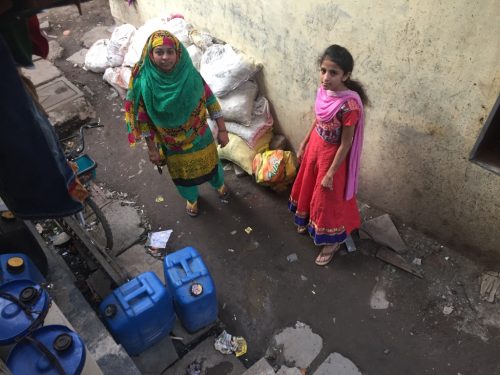
There is no stopping Soulya in her efforts, “The girls in the community are spearheading this process, leading by example. The challenge is attitudinal. There is no one-stop solution for these issues. Youngsters from the community have to take responsibility of moving the needle for the community’s progress.”
If you know other child-champions creating an impact as role-models in their community, email Save The Children.
Like this story? Or have something to share? Write to us: [email protected], or connect with us on Facebook and Twitter.
NEW: Click here to get positive news on WhatsApp!
This story made me
-
97
-
121
-
89
-
167
Tell Us More
We bring stories straight from the heart of India, to inspire millions and create a wave of impact. Our positive movement is growing bigger everyday, and we would love for you to join it.
Please contribute whatever you can, every little penny helps our team in bringing you more stories that support dreams and spread hope.






